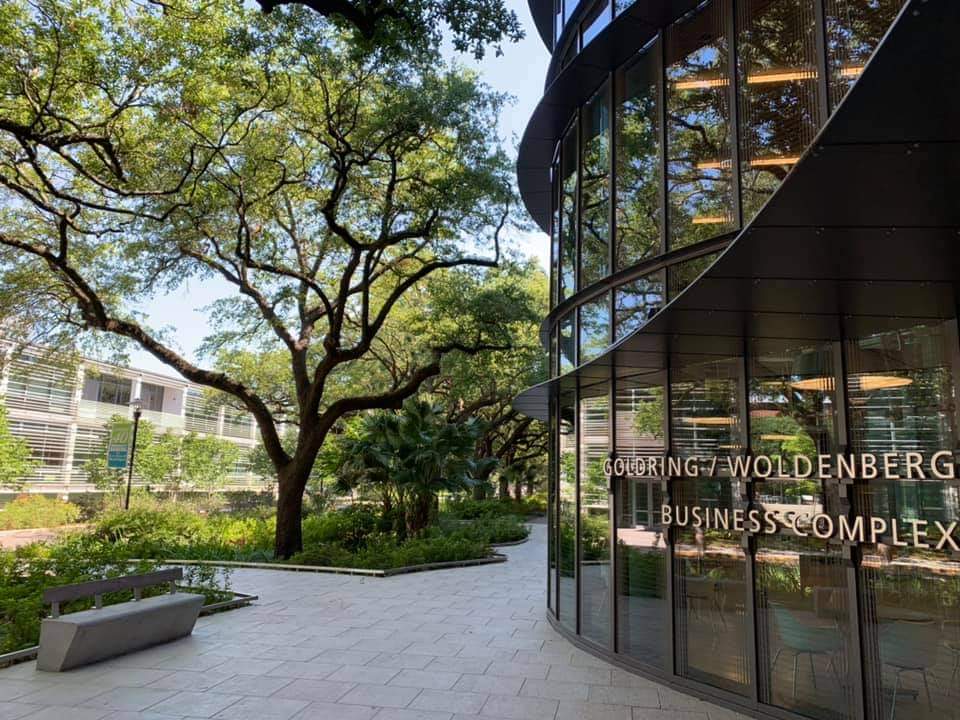Tulane Revamps MBA Curriculum to Focus on Data, STEM
 Credit: Image Credit: Tulane University
Credit: Image Credit: Tulane University- Tulane’s A.B. Freeman School of Business announced a new master of business administration (MBA) curriculum.
- The MBA curriculum will have a heavy focus on data-driven decision-making and experiential learning, according to a release.
- The new curriculum also includes a focus on environment and social inequities, as well as new concentration areas for students.
- The curriculum allows for a host of joint degree options, including JD and MD degrees.
The new master of business administration (MBA) curriculum at Tulane University will focus on data and tech starting in fall 2023, according to a press release from the university’s A.B. Freeman School of Business.
The MBA curriculum will focus on three main points, according to the release: Data-driven decision-making, experiential learning, and preparation for the future of business. The program will also have a science, technology, engineering, and math (STEM) designation.
The curriculum will prioritize the use of data with a five-course sequence focused on data-driven decision-making for future managers and will include “intensive immersion” experiential learning courses.
In the release, Paulo Goes, dean of Tulane’s Freeman School, underscored the importance of new skills in the rapidly changing business world.
“The Freeman MBA was designed from the bottom up to provide business leaders with the knowledge and tools they need to meet today’s demands and tomorrow’s challenges,” Goes said.
The shift toward tech comes as prospective MBA students focus more on high-demand fields as they search for a school. The United Kingdom-based consulting firm CarringtonCrisp found in its most recent Tomorrow’s MBA report that artificial intelligence (AI) is more important than ever for students who want to pursue an MBA, BestColleges previously reported.
AI and the consistently well-performing course “Business and Financial Environment” were both selected as top priorities for prospective students, according to that report.
The new Tulane MBA curriculum will also include new concentration areas — sustainability and strategy and marketing — alongside the current finance and business analytics concentrations. Students will also have the option to pursue a joint degree alongside their MBA, including a:
- Two-year master of sustainable real estate development degree
- 2.5-year master of management in energy degree
- Three-year master of health administration degree
- Four-year juris doctor (JD) degree
- Five-year doctor of medicine (MD) degree
- Five-year bachelor of science (BS) or bachelor of arts (BA) degree
Xianjun Geng, Freeman School senior associate dean for academic programs, said in the release that the curriculum “enables students to pull together knowledge from across different areas to solve problems for real companies and create lasting impacts.”
“The A.B. Freeman School of Business has long been recognized for excellent and innovative offerings like Burkenroad Reports, the nation’s only university-sponsored securities analysis program,” Goes said in the release.
“The new Freeman full-time MBA builds on that expertise with an academically rigorous core, cross-functional experiential learning opportunities throughout and an unwavering focus on the future of global business.”
Environment, Societal Inequities Also a Focus
The Tulane MBA curriculum will also include a focus on the environment, social inequities, and energy sustainability, according to the release. That coincides with another trend identified in CarringtonCrisp’s Tomorrow’s MBA report: Climate change entered into the top 10 most important topics for prospective MBA students for the first time in this year’s report.
That increased focus on climate change is partly due to prospective MBA students seeing companies embrace climate-related positions, like chief climate officers, Andrew Crisp, survey author and CarringtonCrisp co-founder, previously told BestColleges.
“They’re having to have a policy of all of these issues because that’s what their customers are asking them for, or that’s what governments are requiring of them in terms of compliance,” Crisp said, “and so the students, as much as it’s a trend amongst a certain age group, are also very aware that if they have some knowledge and experience of these matters, it’s going to help their employment prospects.”
The Tulane MBA program will also include an optional global trip based around the environmental, social, and governance (ESG) focus, according to the release. It’s aimed at allowing students to “gain a firsthand understanding of ESG best practices in the international arena.”